Don't expect anything amazing coming here. Either the people here just bother to do the bare minimum or they're unqualified to try to treat people. So if you don't need help with anything serious go ahead and come here.
About Communicare
You’ll find Communicare in Lebanon, Kentucky a little over an hour southeast of Louisville. Since 1967, this behavioral health provider has offered services for residents across eight Lincoln Trail region counties. You’ll benefit from comprehensive outpatient care for substance abuse and mental health as well as intellectual and developmental disabilities.
With outpatient care you can attend treatment while living at home. Their clinic provides proven therapeutic interventions to help you get to the root of addiction and gain healthy coping skills. You can participate in group, individual or family sessions, psychiatric medication management, targeted case management, specialized programs and more. These approaches can help you recognize and change the behaviors contributing to addiction.
Empowering Pregnant Women to Embrace Recovery
The program that I found very interesting is the KY Moms Maternal Assistance Towards Recovery (KY Moms MATR) program. This track provides universal prevention services for pregnant women battling addiction. To prevent babies born affected by substances, they collaborate with various community agencies to find and invite women to participate. You’ll benefit from treatment best practices like contingency management and motivational interviewing to gain the tools to achieve and sustain recovery.
A Whole Person Treatment Approach for Opioid Addiction
Another standout feature I noticed was their medication assisted treatment services. If you’re battling heroin or other opioid addictions then this 18 to 24 month program strives to help you with an integrated approach. They have FDA approved medications to help alleviate withdrawal symptoms and cravings that can get in the way of your recovery. They complement care with substance abuse and co-occurring disorder therapy to help you address addiction’s psychological effects.
Accessible Care for Anyone in Need
I also think it’s great that they provide affordable services for everyone. Private insurance, Medicaid and Medicare cover many of their services. And you can still get the help you need even if you don’t have insurance. They provide discounted sliding fee scales to fit your unique needs. That way finances won’t get in the way of starting your journey.
Latest Reviews
Rehab Score
Other Forms of Payment
Medicaid is a state based program that helps lower-income individuals and families pay for healthcare. Medicaid covers addiction treatment so those enrolled can use their coverage to pay for rehab. When a program accepts Medicaid the client often pays very little or nothing out of their own pocket.
Private insurance refers to any kind of healthcare coverage that isn't from the state or federal government. This includes individual and family plans offered by an employer or purchased from the Insurance Marketplace. Every plan will have different requirements and out of pocket costs so be sure to get the full details before you start treatment.
Self-pay involves paying for treatment out of your own pocket. You can use savings or credit, get a personal loan, or receive help from family and friends to fund your treatment. If you don't have insurance or your insurance plan doesn't cover a specific program, self-pay can help ensure you still get the care you need.
Sliding scale payments are based on a client's income and family size. The goal is to make treatment affordable to everyone. By taking these factors into account, addiction recovery care providers help ensure that your treatment does not become a financial burden to you or your family, eliminating one barrier to care.
Military members, veterans, and eligible dependents have access to specific insurance programs that help them get the care they need. TRICARE and VA insurance can help you access low cost or no cost addiction and mental health treatment. Programs that accept military insurance often have targeted treatment focused on the unique challenges military members, veterans, and their families face.
Addiction Treatments
Levels of Care
Outpatient Programs (OP) are for those seeking mental rehab or drug rehab, but who also stay at home every night. The main difference between outpatient treatment (OP) and intensive outpatient treatment (IOP) lies in the amount of hours the patient spends at the facility. Most of the time an outpatient program is designed for someone who has completed an inpatient stay and is looking to continue their growth in recovery. Outpatient is not meant to be the starting point, it is commonly referred to as aftercare.
Drug and alcohol addiction often takes a heavy toll on one's body. Over time, a physical dependence can develop, meaning the body physiologically needs the substance to function. Detox is the process of removing drugs and/or alcohol from the body, a process that can be lethal if mismanaged. Medical detox is done by licensed medical professionals who monitor vital signs and keep you safe, healthy, and as comfortable as possible as you go through detox and withdrawal.
Intensive Outpatient Programs (IOP) are for those who want or need a very structured treatment program but who also wish to live at home and continue with certain responsibilities (such as work or school). IOP substance abuse treatment programs vary in duration and intensity, and certain outpatient rehab centers will offer individualized treatment programs.
Treatments
The goal of treatment for alcoholism is abstinence. Those with poor social support, poor motivation, or psychiatric disorders tend to relapse within a few years of treatment. For these people, success is measured by longer periods of abstinence, reduced use of alcohol, better health, and improved social functioning. Recovery and Maintenance are usually based on 12 step programs and AA meetings.
Drug rehab in Kentucky often starts with detox, then includes inpatient or outpatient treatment, and continues with aftercare support. Specific methods used during each of these phases varies, but often include individual and group counseling, medication, and recreational therapies.
Opioid rehabs specialize in supporting those recovering from opioid addiction. They treat those suffering from addiction to illegal opioids like heroin, as well as prescription drugs like oxycodone. These centers typically combine both physical as well as mental and emotional support to help stop addiction. Physical support often includes medical detox and subsequent medical support (including medication), and mental support includes in-depth therapy to address the underlying causes of addiction.
Substance rehabs focus on helping individuals recover from substance abuse, including alcohol and drug addiction (both illegal and prescription drugs). They often include the opportunity to engage in both individual as well as group therapy.
Programs
Adult rehab programs include therapies tailored to each client's specific needs, goals, and recovery progress. They are tailored to the specific challenges adult clients may face, including family and work pressures and commitments. From inpatient and residential treatment to various levels of outpatient services, there are many options available. Some facilities also help adults work through co-occurring conditions, like anxiety, that can accompany addiction.
Young adulthood can be an exciting, yet difficult, time of transition. Individuals in their late teens to mid-20s face unique stressors related to school, jobs, families, and social circles, which can lead to a rise in substance use. Rehab centers with dedicated young adult programs will include activities and amenities that cater to this age group, with an emphasis on specialized counseling, peer socialization, and ongoing aftercare.
Clinical Services
Group therapy is any therapeutic work that happens in a group (not one-on-one). There are a number of different group therapy modalities, including support groups, experiential therapy, psycho-education, and more. Group therapy involves treatment as well as processing interaction between group members.
Staff
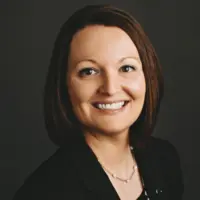
Lisa Wise
CEO
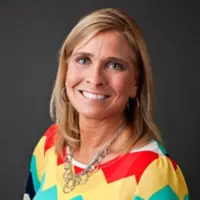
Missy Brown
Compliance Director
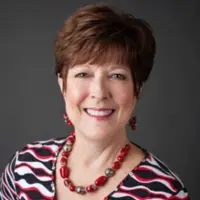
Cheryl Daniels
Corporate Executive Assistant
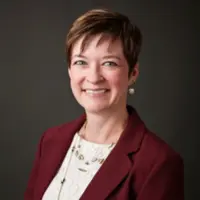
Kristy McGrew
CCBHC Project Evaluator
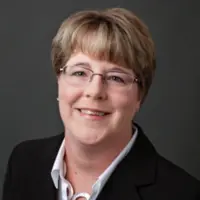
Cindy Norfleet
Human Resources Director
Contact Information
65 Old Springfield Road
Suite 2
Lebanon, KY 40033